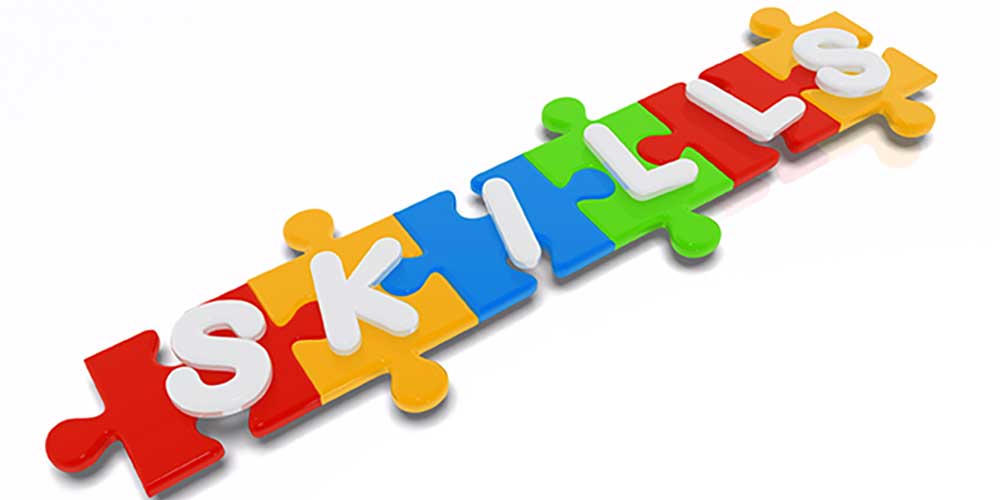How to learn a new skill
What would you like to learn?
Take a minute to list the top five things you’d really like to be able to do. They might be personal skills that you feel would enrich your life. Perhaps learning a foreign language, a musical instrument, the salsa, or how to cook Thai food! Or maybe there are some professional skills that, if you acquired them, would make a genuine difference to your career, taking you in some exciting new direction. Maybe you’d like to be able to influence some difficult stakeholders in your network? Would you like to be able to manage transformational change, or to think strategically? Perhaps you’ve always wanted to start your own business but feel you just don’t have the skills you’d need to make a go of it. What’s on your learning list?
Six hundred years ago, English poet Geoffrey Chaucer captured the sense of frustration most of us feel about our capacity to master new skills as adults. He wrote, “Life is so short and crafts so hard to learn!” But supposing you had access to a practical method of skill acquisition that supported you in learning a few things you know would make a measurable difference to your life. What have you always wanted to be able to do?
Sometimes the need to learn is thrust upon us!
A while back, I broke my left arm. I slipped and fell while out bushwalking. The x-ray showed it was a complicated spiral fracture, requiring a plaster cast from my hand all the way to the top of my arm. The doctor explained that my whole arm would need to be immobilised at a rigid right angle for two months and I was sent home to figure out how to cope!
The first weeks were exhausting, with endless problems to solve and new skills to learn. Shoelaces and even zips proved impossible; buttons feasible but a time-consuming challenge. I’d never realised how many simple, everyday tasks actually require two hands! Chopping vegetables. Hanging out washing. Marshalling documents into a folder. Typing. Packing a suitcase and travelling to Asia to present a program. But when you don’t have a choice, there’s no point wasting time feeling sorry for yourself. I had to set to and learn a whole lot of new skills: different ways of doing old things and entirely fresh skills that I hadn’t had to acquire to that point. For example, I set about learning how to use voice recognition software and, in fact, this briefing was dictated, not typed. So the issue of how best to learn a new skill is a very personal one for me!
Bad news and good news In his book ‘Outliers’, US author Malcolm Gladwell unintentionally caused some confusion. In trying to explain what makes some people successful, he cited research that shows you need around 10,000 hours of practice to achieve expert level performance. That’s a
lot of time to invest! It feels overwhelming for most of us. Allowing for the need to carry on with your usual activities, 10,000 hours equates to around 10 years of your life. It’s often forgotten that Gladwell was talking about how to reach expert level performance, whereas to learn a new skill to a level that is good enough for your purposes is a whole lot less demanding. In fact, other studies show that we’re talking about around 20 hours of practice to get to a level where you begin to be able to use your new skill and start to enjoy it.
Brain plasticity and continuous learning
The latest neuroscience underscores the fact that your brain is plastic and you are capable of acquiring new skills all your life. It could just be your beliefs that are holding you back. Psychologist Carol Dweck has shown that people tend to have one of two mindsets. The first is an unhelpful one but surprisingly common. It’s a fixed mindset where the person assumes that their talents and abilities are innate. Such a person might say, “I’m just no good at languages – there’s no point in trying. Why bother? I’ll never be any good.” On the other hand, people with a growth mindset assume that their skills and abilities will grow, if they persist and practise.
The good news is that all the research indicates every brain is capable of learning and improving, provided you’re willing to practise. When neuroscientists describe our brains as plastic, they mean that our brains respond to the actions we take. It turns out that, for as long as you’re alive, you can learn! Your brain is actually learning, encoding and consolidating new skills all the time. As Dweck says, your mind is like a muscle: the more you use it, the more it grows.
Start with a skill you really want to acquire
You’ll learn something you care about faster than something you don’t. Motivate yourself about your target skill by clearly articulating exactly why it’s important to you. It’s also good to focus on just one skill at a time, when you’re learning how to learn. Don’t try to learn several new things at once because you risk spreading yourself too thin and making no noticeable gains on any front.
US business analyst, Josh Kaufman points out that it helps if you can clearly define your objective. What will ‘good enough’ look like for you, in terms of performing your new skill? Sum up in a single sentence the minimum performance level you’d be willing to accept. Remember this isn’t about world-class mastery! It’s about performing well enough to use a new skill and get satisfaction from it.
What would you like to learn? Are you willing to invest 20 hours in yourself? Use the tips in the side box to help you go from ignorant to capable. Learning how to learn could be your best move yet!
PRACTICAL IDEAS TO APPLY IN YOUR BUSINESS
6 tips for successful learning
- Research your chosen skill. Identify the most important sub-skills, as well as the best order for learning them.
- Get together any resources you’ll need, such as tools, equipment, online information or books.
- Remove obstacles. What might get in the way of your practice? Arrange your environment so that it nudges you in the direction of your practice. Don’t rely on willpower alone.
- Dedicate specific time periods to your practice. You’ll need to identify around 20 hours over the next few months. The early part of acquiring a new skill is often the hardest because it’s usually the least rewarding. Don’t give up! Stick to your 20 hour plan!
- Practise in short bursts. Set a timer for 20 to 30 minutes. Start your practice and continue until the timer goes off. Take regular stretch breaks and don’t exceed 90 minutes on any one occasion.
- Create checklists, glossaries and frameworks. These ensure you become familiar with common terms and help you build mental models to make personal sense of your new learning.



